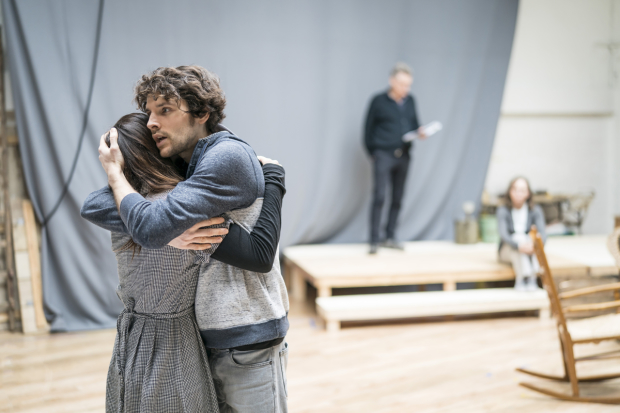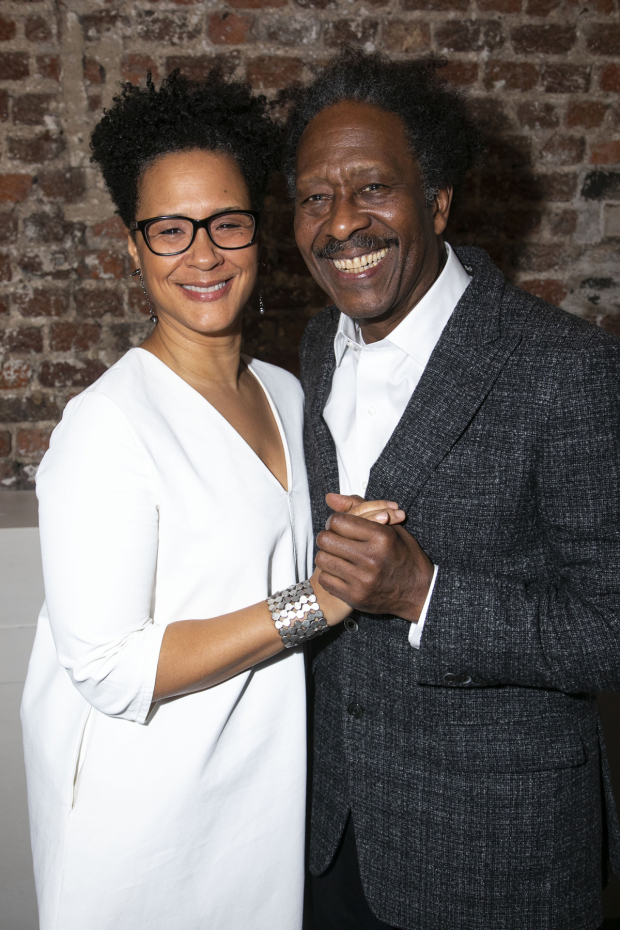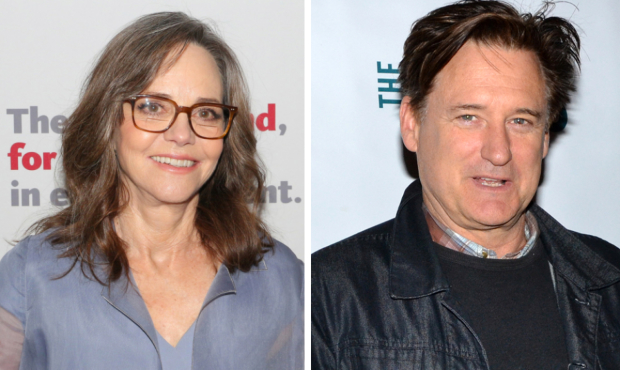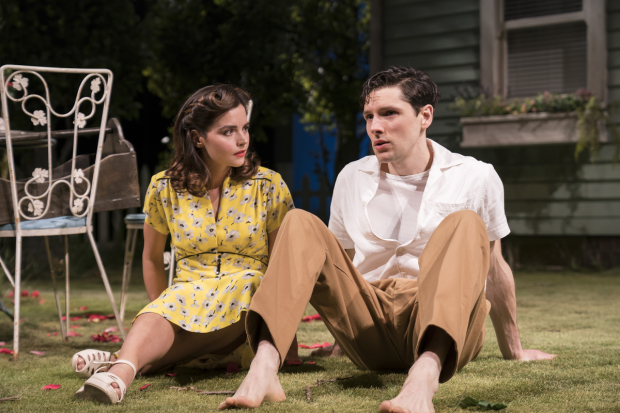Review: All My Sons (Old Vic Theatre)
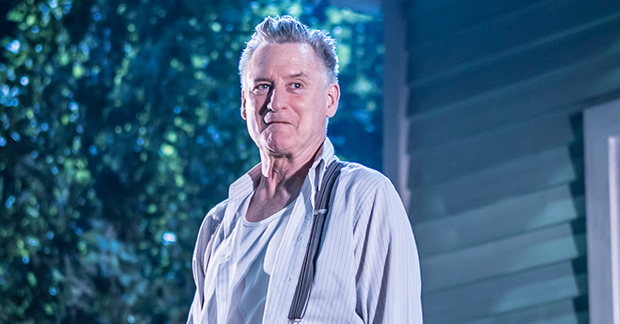
© Johan Persson
There's no playwright who can kick you in the moral guts quite as hard as Arthur Miller. His first Broadway hit, written in 1947, when he was 32 and at the point of giving up theatre, is a case in point. It is just devastating – and given a production as thoughtful and detailed as the one provided here by director Jeremy Herrin, it has an intellectual and emotional power that speaks as loudly today as in the immediate post-war period in which it is set.
Herrin and his designer Max Jones assert its relevance with one moment of trickery at the start: a film on the back wall reflects the history of the US in combat, and the neat suburban homes from which its soldiers have sprung. Then, as if by magic, one of the video houses materialises in front of our eyes, and becomes the home of Joe Keller, pillar of the community, head of a thriving family business and a man who – we gradually discover – has a terrible secret. In the war, his plant produced cracked cylinder heads that made 21 planes crash, and his partner went to jail, while Joe was exonerated.
The terrible repercussions of that act ripple and rise through the play like the crack itself, raising increasingly un-ignorable questions of responsibility and guilt, of who owes what to who, and how morality can be corrupted and warped.
Normally the emphasis is all on Joe and his wife Kate, who has been driven almost to madness by her firm insistence that her eldest son Larry, a pilot missing in action, is still alive. In the roles, American stars Bill Pullman and Sally Field do not disappoint. Upright and watchful, Pullman is astonishing in his control, the way he never lets rip, but suggests that Joe is a man who has been eaten away from the inside. His justification for his behaviour – it was just business, everyone was doing it, I did it for my family – has hollowed him out so he is a simulacrum of the man he appears to be. Pullman's mouth twitches with the tension of keeping up the pretence; his eyes are full of the shame he never speaks.
Field is equally convincing, though her performance is larger. She conveys both frailty and inner steel – she has a kind of fierce sweetness as she attempts to smooth over the surface of things, manipulating those around her to achieve her own ends. But Field also suggests Kate's kindliness, and the high cost she has paid for her refusal to face the truth, as she incessantly plucks at her skirt or folds her arms around herself.
What's so impressive about this Headlong/OId Vic co-production, however, is the way that it shines a light on the next generation whose prospects have been warped by the terrible legacy of war. The tenderness between Ann (Jenna Coleman, returning to the stage after a long break on TV), Larry's former fiancée who is now in love with his brother Chris (Colin Morgan) is all the more heart-breaking because it is doomed not just by Kate's refusal to countenance their marriage, but by the dark shadows that hang over them.
Coleman is lovely, finding richness in a role that is essentially reactive, listening intently to all that is going on, hanging on to her hopes of happiness. Morgan once again proves himself to be one of the outstanding actors of his generation, conveying all Chris' warmth and honesty, making their loss unbearable. When he cries, "I know you are no worse than most men, but I thought you were better," it is both the heartrending cry of a son, and of a generation that has been betrayed.
They all are beautifully depicted, from Oliver Johnstone's angry George, full of angular disappointment and a desire for revenge, that softens when he sees his childhood sweetheart Lydia (Bessie Carter, wonderful) and realises that dream of happiness is also lost. The moment where he straightens his tie and she shakes her head sadly as Kate says they should have married, is an entire story in a second. Sule Rimi and Kayla Meikle are also excellent as the new neighbours who, like much of the play, reveal the battle between pragmatism and idealism, but this time in gently comic form.
In fact, the only thing that spoilt an evening of quiet concentration and profound understanding was the prevalence of mobile phone tones breaking out. If the Old Vic is going to use E-tickets, it has to remind people to turn their phones off after they have been checked. You can't mount a production this good and then let it be disrupted.



